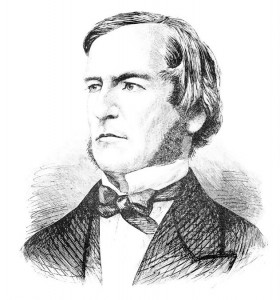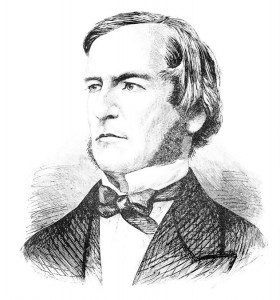- Posted Nov. 2, 2013, 1:11 p.m. - 11 years, 8 months ago
The Life & Times of George Boole
 With November proving a significant month for events in computing history, we reflect on the life of George Boole, a remarkable philosopher, mathematician and logician whose pioneering work would see him credited as being the founder of computer science.
With November proving a significant month for events in computing history, we reflect on the life of George Boole, a remarkable philosopher, mathematician and logician whose pioneering work would see him credited as being the founder of computer science.
Early Life
Born in Lincoln on 2 November 1815, George Boole’s early life involved being taught by his father and attending an elementary school, however aside from assistance in the subject of Latin, it appears that Boole educated himself in subjects such as modern languages before commencing a career in teaching with positions in Doncaster and Liverpool from the age of 16.
Having taught himself mathematics and calculus, which given the complexity of the subjects took a number of years, Boole’s teaching roles would also include a position at the Waddington Academy Boarding School initially run by Robert Hall, where following his colleague’s death Boole would later become the Headmaster.
Boole was heavily involved in the community in Lincoln, and took part in the setting up of a building society as well as campaigning for early closing – seeking to restrict hours worked and also Sunday trading.
Career
Boole’s career progressed and in 1849 he secured a role at Queen’s College in Cork, Ireland as Professor of Mathematics, the first to hold such a position there. It would be here that he met Mary Everest who would later become his wife.
Throughout his life, Boole published many papers and articles including those on analytical transformations, invariant theory (abstract algebra) and linear differential equations. 1847 would see the publication of The Mathematical Analysis of Logic, with Boole covering symbolic logic for the first time, which would later be followed by An Investigation of the Laws of Thought on Which are Founded the Mathematical Theories of Logic and Probabilities, which would prove to be highly influential. It was the result of such theories that Boolean Logic, Boolean Algebra and Boolean Rings would come to be. 1857 would see Boole become a Fellow of the Royal Society, with further honours received from both the University of Dublin and Oxford University.
Sadly, Boole passed away at the age of 49, after falling ill with fever and subsequently suffering with pleural effusion – excess fluid on the lungs.
Boole’s work would be further developed by other logicians in the coming years, and it would be an American by the name of Claude Shannon, studying philosophy at the University of Michigan, who concluded that the basis of mechanisms and processes could be formed using Boole’s theories. In Shannon’s thesis in 1937 he detailed the use of Boolean algebra in improving the design of electromechanical relay systems in telephone routing switches, and also provided evidence for the use of circuits and relays in the solving of Boolean algebra problems. Prior to Shannon’s work, in Russia, Victor Shestakov had also been focussing on electrical switches using Boolean logic at Moscow State University, with fellow mathematicians and logicians such as Yanovskaya and Dobrushin also involved in this field.
With the realisation of these findings, Boolean logic would form the foundation of digital circuit design, with the basic concept of electronic digital computers using the features of electrical switches to process logic.
Image Credit: http://bit.ly/185IYblLatest Articles
-
Our latest testimonial for Infix 6
Dec. 19, 2016, 2:40 p.m. -
Most commonly translated Turkish words
Feb. 6, 2015, 9 a.m. -
Merry Christmas & A Happy New Year
Dec. 25, 2016, 8 a.m. -
New Save PDF to SVG feature introduced to Spire.Office
Dec. 23, 2016, 11:54 a.m. -
Editing educational PDFs – a user perspective
July 21, 2014, 8:03 a.m.


